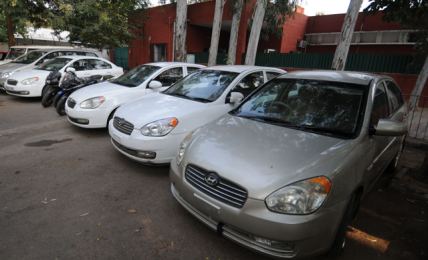If you visit any big city across the U.S., looking for a cup of fresh brewed coffee or a strong espresso, you’ll most likely be a short hop and skip from a Starbucks. The simple yet infamous logo of the twin-tailed mermaid stands out from the rest and you could most likely recognize the stark green details on a white cup from several feet away. Starbucks’ history, starting out as a single coffee roaster and retail store in Seattle circa 1971, has become a genuine “rags to riches” story.
Many coffee lovers, yearning for a non-corporate feel, often snub their noses at the multi-million, worldwide corporation and opt to support the non-chain coffee shops that work hard for every cent (and coffee bean).

Similarly, some Starbucks baristas have had enough of the hard work and unsafe working conditions, wishing they could see more compensation for their dedication. Workers, worldwide, from laborers to office assistants are entitled to a safe working environment; the barista, who makes your daily mocha, is no exception. Has one of America’s most popular corporations stopped caring for their employees?
“Making Coffee is Pretty Easy and Fun, Right?”
Many loyal customers, who stand in line for up to 10 minutes to get their “morning fix”, may or may not understand the physical and mental well-being that is needed for each 16 oz. skim milk, sugar-free vanilla latte. Being a barista can be draining, physically and mentally. The average barista, on a regularly busy shift, stands for hours on a food service regulated floor (usually a hard tile) and sometimes even proper footwear and stress mats don’t completely absorb and cushion the stress and strain on feet, knees, and lower backs.
Baristas are often at risk for wrist strain and carpel tunnel due to the rigorous and repetitive motion of “tamping” the freshly ground espresso, which is needed for each espresso based drink. A sore and tired body, at the end of the day, is just “part of the trade” for many baristas.
In an interview with 475 various coffee shop workers, many workers revealed that they had work-related stress injuries. Of the workers surveyed, 47% had experienced upper body repetitive stress injuries, 20% had experienced heart palpitations or chest pains (from too much coffee), and 62% believed that their job or required caffeine intake (for sampling/quality control), caused emotional issues such as depression.
Even if baristas are equipped with stress mats and an occasional much needed break, baristas are not generally offered health insurance or benefits. Of the workers interviewed, the number of workers who had no health insurance or benefits offered to them outweighed the number who actually did. Additionally, many baristas find that they are unable to take time off when ill due to the simple fact that they cannot afford to take time off of their job.
Treat Your Barista Right
Many employers and customers, alike, might ask, “If the job is so bad, why don’t you quit?” However, if you ask the majority of baristas, they don’t quit because they love the job. The wages are typically low, but with a loyal customer base and a true talent of making a beautiful and strong latte, tips keep many baristas financially afloat. Starbucks and independent coffee shop workers, alike, are at risk for work-related injuries and often do not receive proper compensation for their hard work.
According to Starbucks, eligible full and part-time employees were first offered full health benefits in 1988. The members of the Starbucks Workers Union, however, have a different experience with those so-called “health benefits”. According to the union members, Starbucks insures 42% of its workers, but with many stipulations. Starbucks employees must work 240 hours per quarter to qualify to purchase health care through the company.
Not all workers are assured working hours to qualify and premiums, co-pays, and deductibles are very costly, especially on the average barista’s wage.
Leaders in Coffee Should Lead By Example
In a work environment, where workers risk their physical well-being, proper and affordable health care is important and well-deserved. Whether a barista suffers from carpel tunnel or a severe burn from the steam wand, he/she may have to shell out a lot of hard-earned tips to pay for their medical expenses. The founders of Starbucks know the value of hard work and a dream, especially considering the success of their corporation (17,651 stores and counting).
They should treat their dedicated and hardworking employees with the same respect that is brewed with the company’s name every day.
Featured images:
License: Image author owned
Jacob Masters is a freelance writer and author who has worked in the health industry for over a decade. His goal in life is to increase the internet knowledge base one article at a time. He also likes to push the boundaries through his city wide evening excursions as a guerilla gardener.




